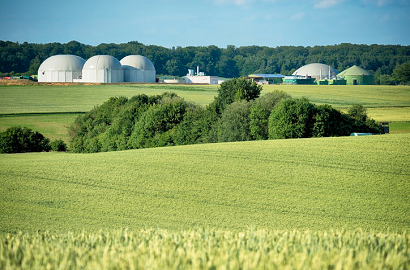Moeve to build 30 biomethane plants in Spain

The company plans to invest 600 million euros to produce four terawatt hours of this sustainable fuel by 2030.
Just three months after becoming Moeve in order to consolidate its commitment to sustainable energy solutions, the former Cepsa has announced a new million-dollar investment in Spain, differentiated from the already well-known Andalusian Green Hydrogen Valley, made up of its energy parks in Palos de la Frontera (Huelva) and San Roque (Campo de Gibraltar, Cádiz).
As a new development, Moeve has announced an investment plan of 600 million euros to build around 30 biomethane plants by 2030. Although the company intends to build these facilities throughout the country, for the time being, Andalusia, Catalonia and Galicia are the regions with the greatest potential to host them.
Ten million tonnes of waste per year
The plan is to produce biomethane from agricultural and livestock waste, with the capacity to repurpose around 10 million tonnes per year. Moeve aims to produce up to four terawatt hours by 2030 using this raw material. The renewable fuel that will come out of these facilities will replace part of the fossil gas currently used at its power plants and chemical plants, and will also be supplied to its customers and strategic industrial partners and used to produce green hydrogen and to boost sustainable mobility.
The project will be developed through agreements with partners like Kira Ventures and PreZero, and other partnerships are being explored. For example, it has just closed a deal with InproEner to develop five of these plants and make them operational between 2028 and 2029. Each of them will be able to produce around 50 gigawatt hours per year.
A key asset
Moeve's Director of Biofuels, Matteo Vaglio, describes biomethane as a key asset “for decarbonising our activity and that of our customers, as it can be used immediately in existing industries and transport networks, thus facilitating its integration into the current energy market, while boosting the economic and social development of rural areas”.
Biomethane is produced through a natural decomposition process, called anaerobic digestion, of biodegradable organic agricultural, livestock and industrial waste. The subsequent purification of the biogas obtained converts it into biomethane, whose life cycle considerably reduces emissions, not only by recovering polluting waste but also because it produces less carbon dioxide than conventional natural gas.
On the other hand, biomethane plants such as those to be spearheaded by Moeve not only offer a sustainable alternative to treating this waste, but also extract from the process the raw material for manufacturing by-products, such as sustainable manures and fertilisers.
Photo: Moeve




